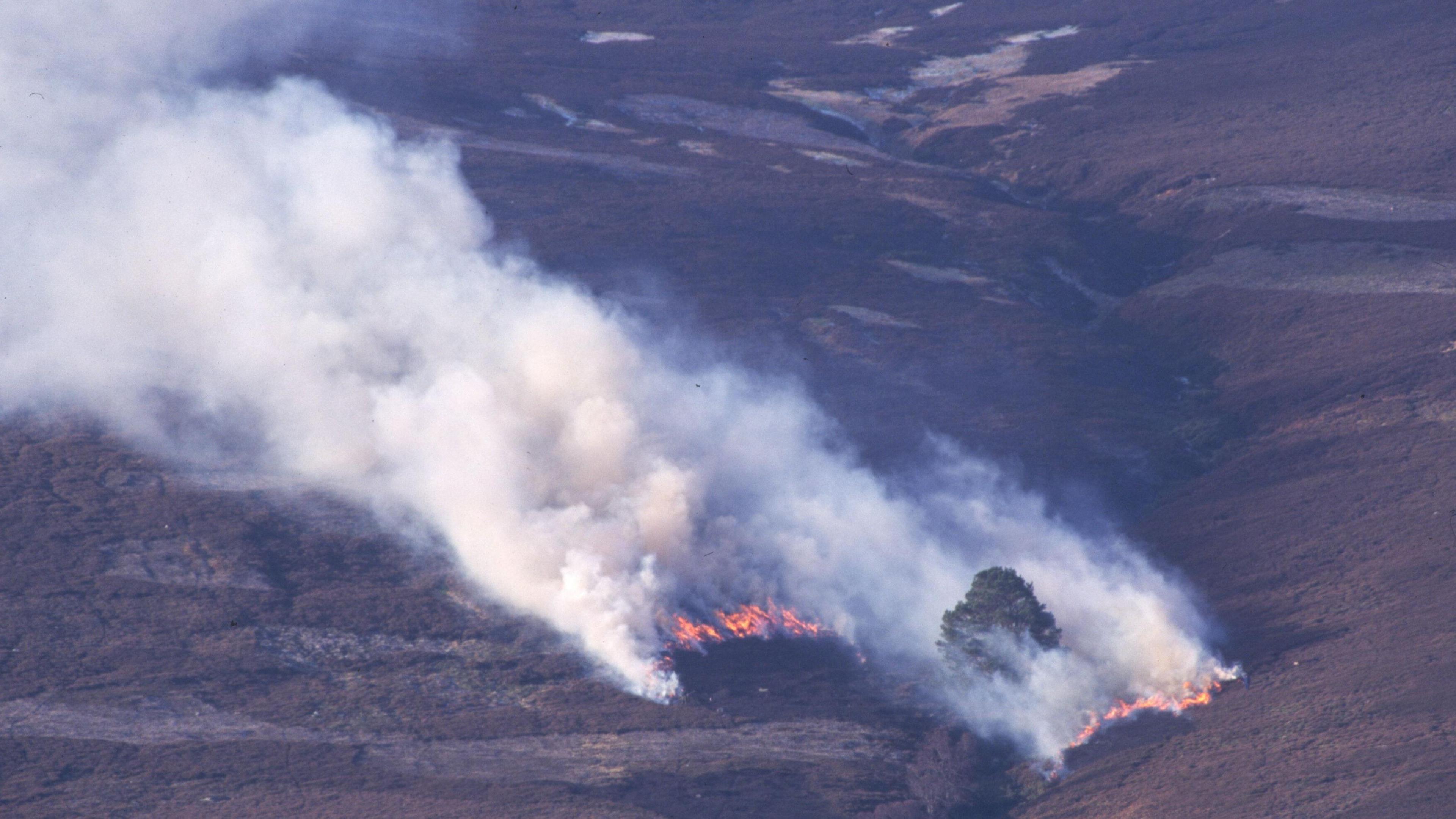Extreme wildfire warning issued after Highland blaze
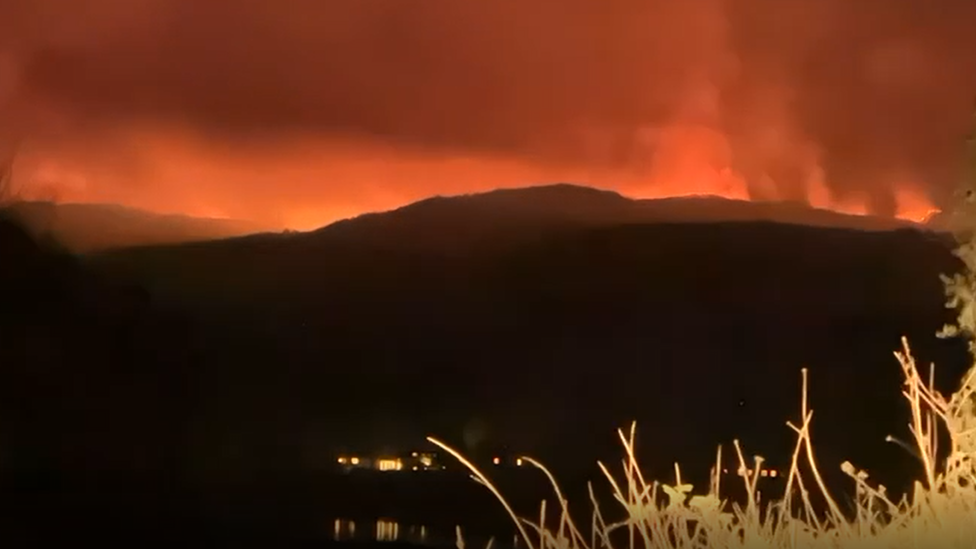
A wildfire spread quickly across Glenuig in Lochaber last weekend
- Published
An "extreme" wildfire warning has been issued for the Highlands and large parts of northern Scotland.
The Scottish Fire and Rescue Service (SFRS) said much of the rest of Scotland remains at "very high" risk due to a combination of high temperatures, low humidity and growing winds.
The warning is in place throughout Saturday.
SFRS also has released a timelapse video which shows the intense and rapid spread of a recent wildfire in the Highland village of Glenuig in Lochaber.
The wildfire spread across two miles before being extinguished by more than 30 firefighters over two days last weekend.
The fire service had issued an extreme wildfire warning last Friday and Saturday for north-west Scotland.
In spring, there is a lot of leftover dead vegetation which can dry very quickly and act as fuel for wildfires to spread easily.
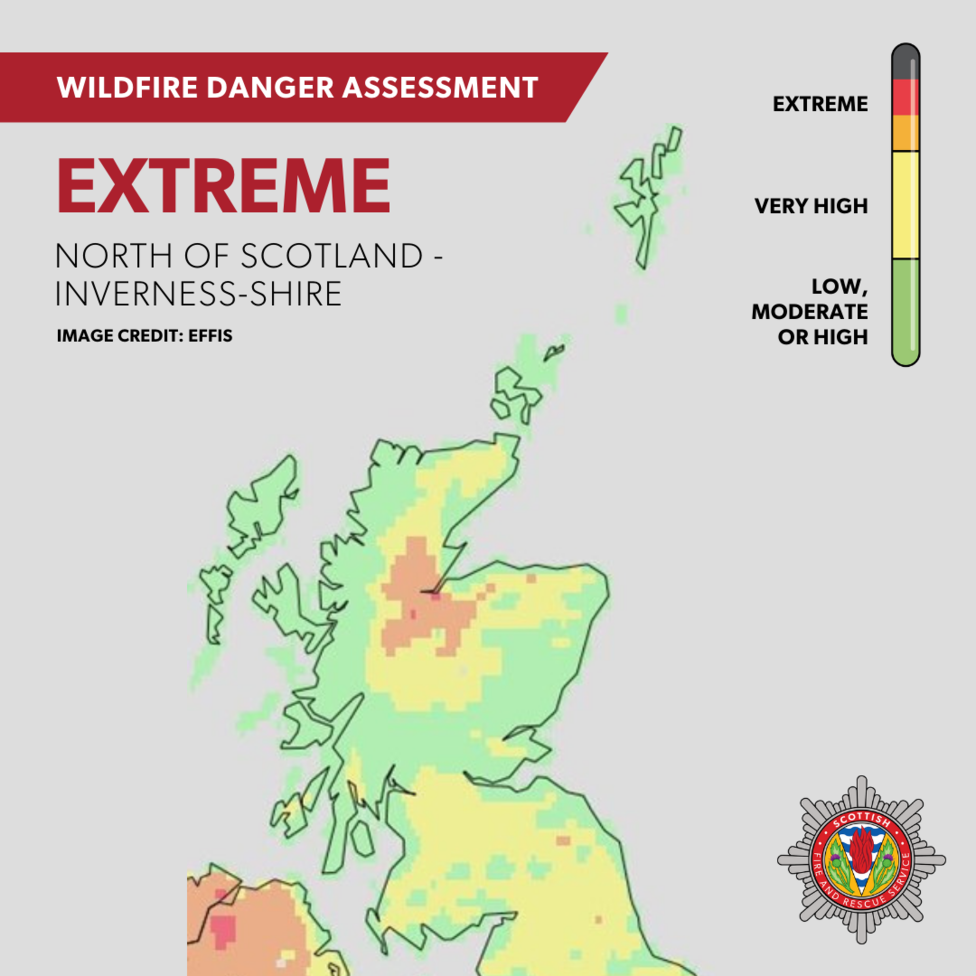
The SFRS said many rural communities were "hugely impacted" by wildfires that could cause significant damage.
Group commander Niall MacLennan, a SFRS wildfire tactical advisor, urged those in Scotland’s countryside to act with caution this week and avoid any naked flames.
He said: “We know how damaging wildfires can be to the environment, wildlife and nearby communities and they place a significant demand on our emergency service.
“Human behaviour plays a significant role in preventing wildfires and clearly with this spell of warm weather, we anticipate large volumes of people will enter the countryside this weekend.
“We must ask that people behave responsibly and to please think twice before using any naked flames.”
Extreme wildfire warning issued after Highland blaze
How do wildfires happen?
The Scottish Fire and Rescue Service defines wildfires as large, uncontrolled outdoor fires that exceed 1,000sqm in area.
These typically happen in places with combustible vegetation that acts as fuel to allow the fire to spread rapidly.
They are described as "unplanned, uncontrolled, and unpredictable" and people need to take the greatest care at high-risk times of year.
Common causes of wildfires include:
Unattended flames - barbecues, campfires, and bonfires that are not properly extinguished
Controlled burns - These are used to manage land, but can spiral out of control if they go wrong
Cigarettes - Careless disposal can spark a fire in dry conditions
Glass bottles - Sunlight shining through a bottle can act like a magnifying glass, focusing heat on dry grass nearby
Hot and dry weather - Prolonged periods create a "tinderbox environment" where even a small spark can easily ignite a wildfire
Cold, dry and sunny weather - The combination of low humidity and strong winds can dry out vegetation and fuel wildfires
More information and advice is available from the Scottish Fire and Rescue Service website, external.
- Published3 May 2024
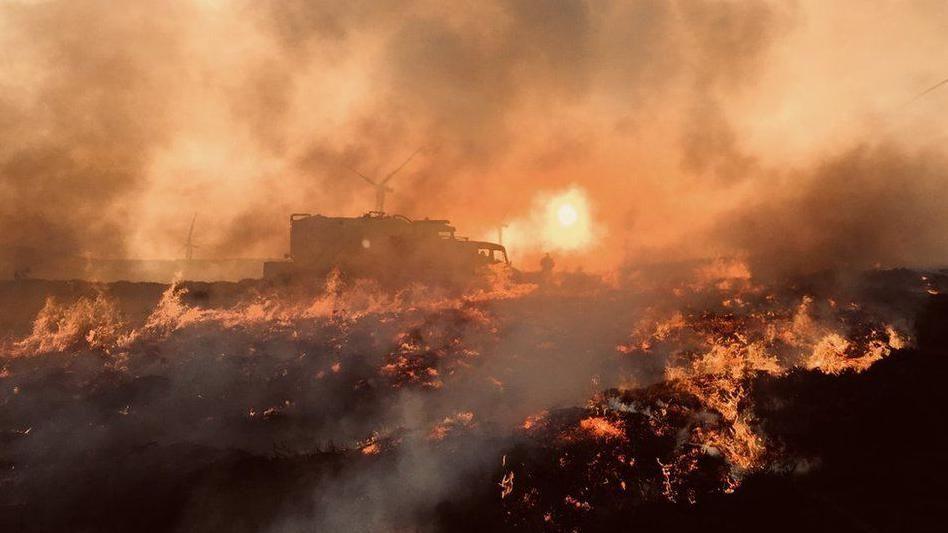
- Published25 April 2024
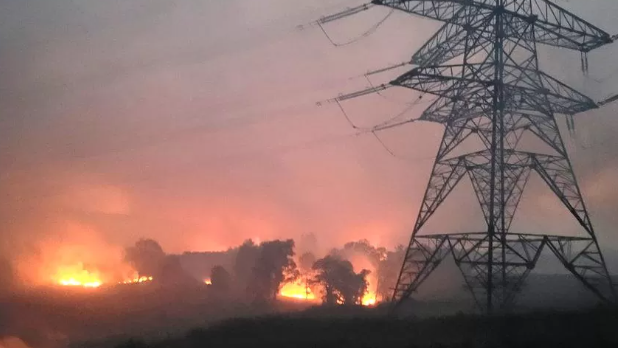
- Published31 May 2023
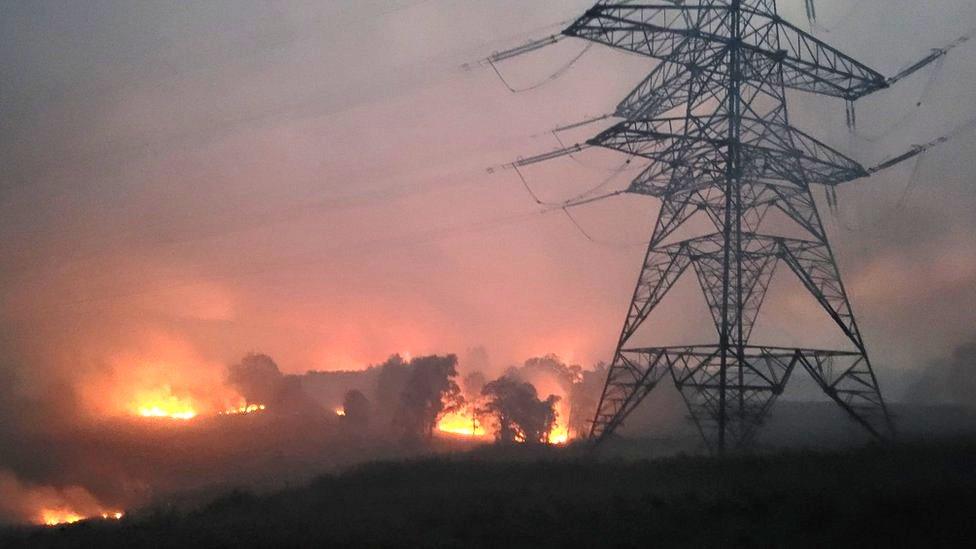
- Published1 March 2024
